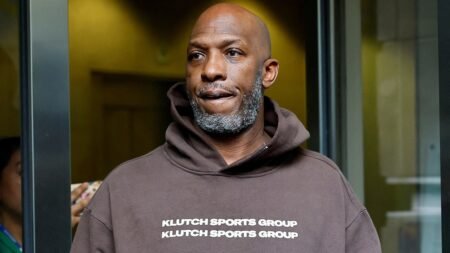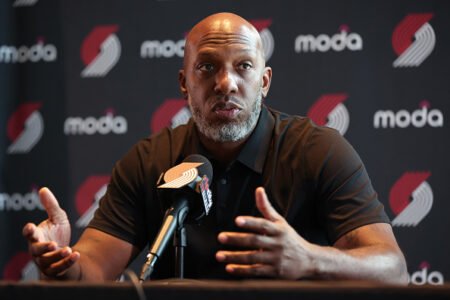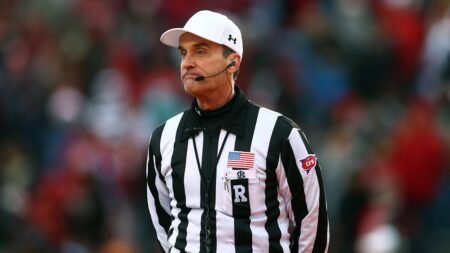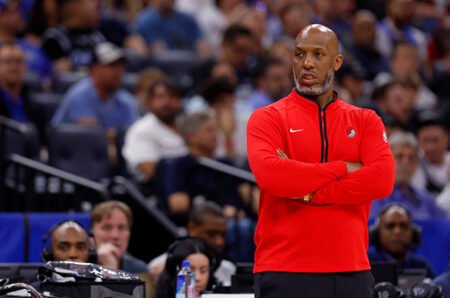A trans powerlifting case reveals how state Democrats are weaponizing the Minnesota Human Rights Act to force male athletes into female divisions.
The Minnesota Human Rights Act (MHRA) is a half a century old. And now, that outdated law is being used to undermine the protections it once helped create — particularly when it comes to fairness in girls’ and women’s sports.
The Minnesota Supreme Court issued a split decision Wednesday in the case of JayCee Cooper, a trans-identifying male athlete who sued USA Powerlifting after being barred from competing in the women’s division.
On one hand, the justices ruled that USA Powerlifting discriminated against Cooper based on gender identity — a violation of the state’s Human Rights Act. But on the other hand, the court allowed the organization to argue at trial that its policy is justified under a “legitimate business purpose” defense.
To summarize, the court said USAPL was guilty of discrimination, but might have had a lawful reason for it.
“It seems inherently contradictory, doesn’t it?” Ansis Viksnins, an attorney representing USA Powerlifting, told OutKick in an exclusive interview. “The same legitimate reasons apply across the board, but the court says they matter for one part of the case and not the other.”
EXCLUSIVE: Science Vs. Pseudo-Science: USA Powerlifting Lawyer Defends Ban On Trans Athlete
The root of the contradiction, he says, lies in the way Minnesota law treats sex-based protections.
The Minnesota Human Rights Act Loophole
Passed in 1973, the MHRA includes an exemption allowing sex-based separation in athletics. But it never mentions gender identity or transgender status. That omission has created a loophole that, according to the Minnesota Supreme Court, allows biological males to compete in women’s divisions if they identify as female.
“So, in other words, you can separate boys’ teams from girls’ teams, boys’ competitions from girls’ competitions,” Viksnins explained. “But apparently you can’t separate a transgender person from a certain category because that exemption only uses the word ‘sex’ and not sexual orientation or gender identity.”
Viksnins said this interpretation distorts the original intent of the law.
“In our lawsuit, we actually had a friend-of-the-court brief from the Minnesota Catholic Conference, which was involved very actively back in the 1990s when this exemption was written,” he said. “Their position is that nobody at the time could possibly imagine that, 30 years later, a court would interpret that exemption as only protecting sex-based segregation and not separation based on transgender status.”
So back in the early ’90s, no one would have dreamed that we’d all be fighting over the legal definitions of male and female.
He called it “a relatively easy fix,” but one unlikely to happen anytime soon.
“I think there are things that the Minnesota Legislature could do — fairly small and easy fixes to the statute that would make clear that in athletic competitions, it is not a violation of the Human Rights Act to categorize transgender women as biologically male, and that would be a relatively easy fix,” Viksnins said.
“But the statute is what it is. It hasn’t been changed in 30-35 years, and the wording no longer reflects what I believe the intent was.”
Even if some lawmakers wanted to fix it, the political math just isn’t there. Minnesota’s House of Representatives is split 67–67 (a perfect tie between Republicans and Democrats). And since Democrats repeatedly refuse to stand up for women in sports, gridlock is almost guaranteed.
A Pattern In Minnesota
OutKick has extensively covered Minnesota’s repeated failure to safeguard women’s sports. Earlier this year, a trans-identifying male athlete dominated the girls’ state softball tournament, sparking backlash from parents and drawing national headlines.
RELATED: Minnesota Rep. Leigh Finke Stands By Trans Athletes
At the federal level, the U.S. Department of Education and Department of Justice have launched an investigation into Minnesota’s refusal to comply with Title IX guidance.
Now, this USA Powerlifting case is exposing just how deep the problem runs. And how Minnesota Democrats are twisting a decades-old civil rights law to erase the very sex-based protections it was meant to uphold.
Read the full article here












